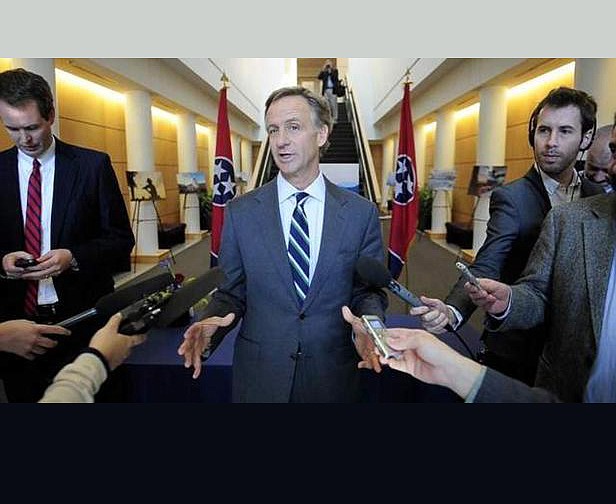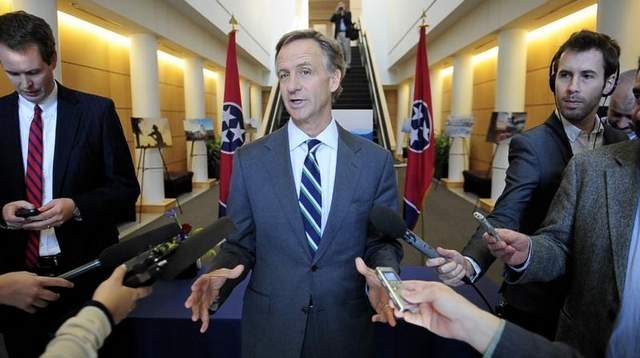Haslam ponders cost impact to some employers without Medicaid expansion
Wednesday, March 13, 2013
NASHVILLE - Employers with 50 workers or more risk getting socked with up to a $3,000 per person annual charge for insuring low-paid employees if Tennessee chooses not to expand TennCare under the federal health care law, a national tax preparation firm says.
Republican Gov. Bill Haslam said the issue is part of his considerations as he continues to weigh whether to recommend expanding TennCare, the state's version of Medicaid, to the GOP-led Legislature.
"It's a complex decision," Haslam told reporters today. The state, potential enrollees, businesses and hospitals will be affected by the decision one way or other.
"So anybody who thinks this is a no-brainer decision either way, I don't think has really done the work on it," Haslam said. "We'll probably have a recommendation back in a couple of weeks" whether to pursue the expansion.
Earlier today, Jackson Hewitt Tax Service released a report shedding light on a little-discussed provision of President Barack Obama's Affordable Care Act - its impact on some employers.
"In the 22 states that have opposed, are leaning against or remain undecided about expanding Medicaid, we predict employer-shared responsibility costs could total $876 million to $1.3 billion each year," said Brian Haile, the company's first senior vice president for health policy.
Haile, a former director of Tennessee's Health Insurance Exchange Planning, said in the company's news release that with states still evaluating participation in the Medicaid expansion, "it is critical that any projections of the 'net' costs of Medicaid expansions also reflect the very real costs of the shared responsibility penalties to employers in any particular state."
The federal law envisions states expanding Medicaid coverage to low-income adults whose incomes are 100 percent to 138 percent of the federal poverty level.
Last summer's U.S. Supreme Court ruling on the law left the decision of expansion up to states.

